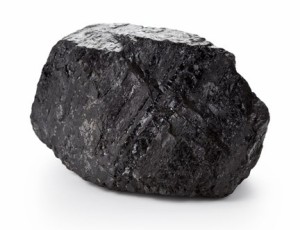
WOW, what did this guy get for this “Guest Commentary” in the La Crosse Tribune? What does he think about his electric rates going up? Does he know they’re restarting La Crosse Unit #3?
By Ed Lump | Madison
The Wisconsin Restaurant Association is part of a coalition of groups that support the proposed Badger Coulee transmission line project. We often take for granted having reliable power for our homes and businesses, but for the restaurant industry and others, the stakes are too high to stand on the sidelines.
What do restaurants have to do with power lines you may ask? Imagine this hypothetical: It is a Saturday night at a busy restaurant in Wisconsin, and the power goes out. No food can be cooked. No dishes can be washed. The large investment in meat and produce that each restaurant makes on a daily basis is very quickly becoming worthless as time ticks on.
The restaurant ostensibly shuts down, losing sales but still having to pay for the food, staff and overhead costs — and the fallout of unhappy customers who will no doubt share with others tales of their terrible experience. This is the stuff that restaurateurs’ nightmares are made of.
Electricity is one of the highest operating costs for restaurants. After labor, capital expenses and food and beverage costs, energy is the next largest cost for most foodservice businesses.
Restaurants are making great strides in energy conservation, and many restaurants are passionate about energy efficiency and environmental awareness. However, the fact that the restaurant business is energy-intensive is unavoidable. Refrigeration, cooking, lighting, ambient heating and cooling and long hours of operation (morning, noon and night and seven days a week for many restaurants) all make for a high energy bill.
Access to affordable and reliable electricity is paramount to the success of the restaurant industry and others in Wisconsin. Unfortunately, western Wisconsin’s existing transmission system is not robust.
According to a comprehensive study of the area, it’s vulnerable to reliability issues. As our nation weans itself off fossil fuels, it’s critical that the infrastructure is in place to deliver low-cost, clean energy, such as wind power. While Wisconsin has a strong in-state wind resource, wind energy harnessed in western Minnesota, South Dakota and Iowa can be more efficient and even cheaper.
Numerous studies have found that as the amount of wind energy generation increases in the upper Midwest, the transmission connection between Minnesota and Wisconsin becomes vitally important for the delivery of wind power to key load centers in Wisconsin.
The Badger Coulee transmission line project will improve the deliverability of the lowest-cost energy sources and help ensure that restaurants and other small businesses in Wisconsin will have the power they need to continue to be the hard-working engine of our economy. The project also will in itself have a positive economic impact on our state. The capital investment is expected to create and support more than 2,800 jobs during construction, and the line will generate millions in new tax revenue for local communities in Western Wisconsin.
Badger Coulee is a much-needed investment in Wisconsin’s energy infrastructure to help our state become better equipped to meet our future energy needs.
I encourage the public, state regulators and elected officials to join me in supporting the project.


Comments
Badger Coulee — One lump or two? — No Comments
HTML tags allowed in your comment: <a href="" title=""> <abbr title=""> <acronym title=""> <b> <blockquote cite=""> <cite> <code> <del datetime=""> <em> <i> <q cite=""> <s> <strike> <strong>